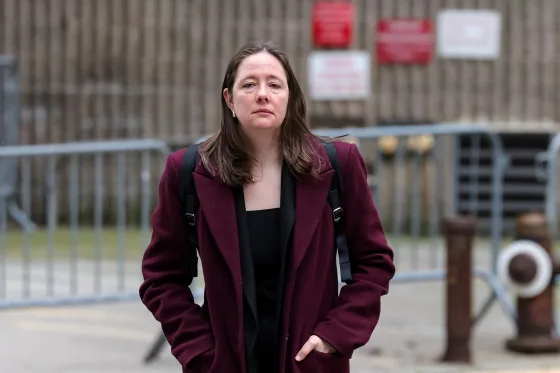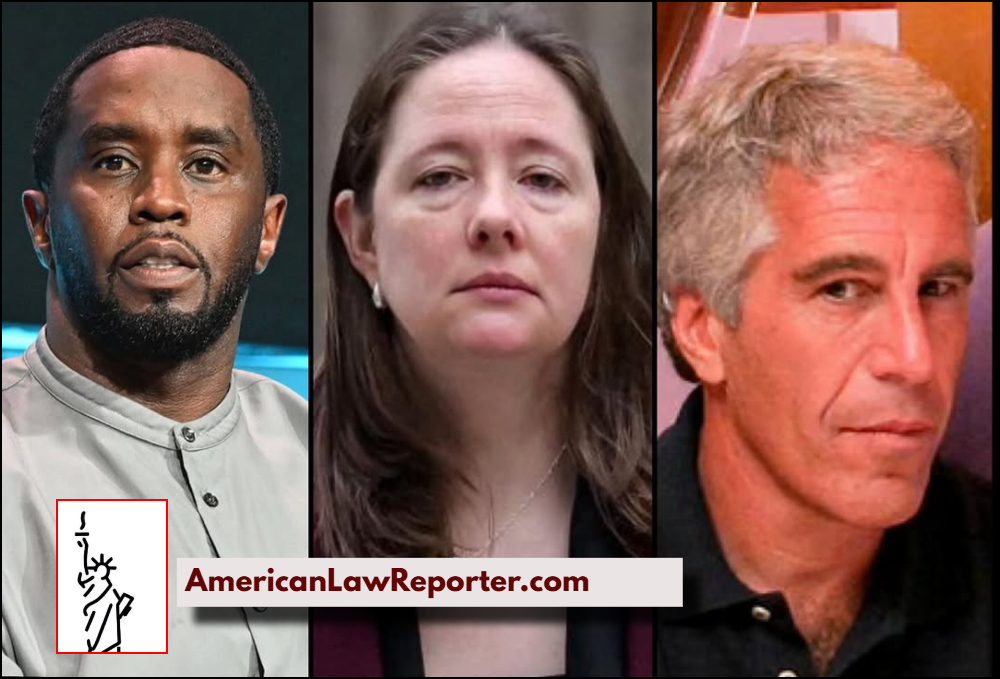The U.S. Department of Justice has fired Maurene Comey, a high-profile federal prosecutor known for her roles in the sex trafficking trials of Sean “Diddy” Combs, Ghislaine Maxwell, and the late Jeffrey Epstein, according to four sources familiar with the matter.
The dismissal was carried out on Wednesday, July 16, and was first reported by Politico. A source close to the Southern District of New York (SDNY) said the office cited Article II of the U.S. Constitution, which grants executive authority to the president, as justification for her removal.
No formal reason was provided, and SDNY spokesperson Nick Biase declined to comment, per NBC News.
Prosecutorial Legacy and High-Profile Cases

Maurene Comey, daughter of former FBI Director James Comey, had built a reputation as a sharp, meticulous federal prosecutor. She was most recently involved in the sex trafficking prosecution of music mogul Sean Combs, who was convicted on two counts related to prostitution earlier this year. She also served on the prosecutorial teams in the Jeffrey Epstein and Ghislaine Maxwell cases, both of which drew intense public scrutiny.
A former Justice Department colleague, speaking anonymously, described Comey as “intelligent, compassionate, and highly respected for her legal acumen and leadership.” Her sudden termination has raised eyebrows, particularly given the broader political tensions surrounding the Epstein investigation.
Political Backlash and Epstein Memo
The firing comes days after Attorney General Pam Bondi declared that no further Epstein-related documents would be released, fueling accusations of stonewalling from both ends of the political spectrum. Adding to the controversy, the DOJ and FBI released a two-page memo debunking popular conspiracy theories surrounding Epstein’s death, alleged blackmail operation, and supposed “client list.”
The memo concluded that no credible evidence supports claims that Epstein blackmailed public figures or kept a secret list of associates. It also reaffirmed the DOJ’s official determination that Epstein died by suicide while in federal custody in 2019—during the first Trump administration and under the oversight of then-Attorney General William Barr.
Trump, Comey, and Conspiracy Politics
President Donald Trump, currently in his second term, has long accused the FBI and Democratic leaders of hiding Epstein-related evidence. Despite that, Trump himself has recently urged supporters to move on from the issue. His MAGA-aligned base, however, has continued to push for the release of more documents.
In a recent outburst, Trump baselessly accused James Comey, along with Barack Obama and Joe Biden, of “creating false Epstein files.” These claims stand in contrast to the historical record: Epstein’s prosecution and death occurred during Trump’s first term, long after Comey, Biden, and Obama were out of office.
This week, House Speaker Mike Johnson (R-La.) joined several Republican lawmakers in calling for the full release of Epstein-related materials—an unexpected challenge to Trump’s position.
Legal and Ethical Questions
The abrupt termination of a seasoned prosecutor like Maurene Comey, without public explanation, has stirred alarm among legal observers. Critics fear the move may be part of a broader politicization of the Justice Department, especially as pressure builds around unresolved Epstein matters.
The invocation of Article II by SDNY as a justification, while constitutionally sound in a technical sense, underscores the executive branch’s growing influence over prosecutorial discretion—a development likely to be scrutinized in legal and academic circles.
What Comes Next
Comey’s dismissal leaves open questions about the future of related investigations and how the DOJ will navigate an increasingly politically charged legal environment.
With Epstein conspiracy theories continuing to ripple through American politics, the legal and ethical implications of Comey’s firing are likely to resonate far beyond the courtroom.

